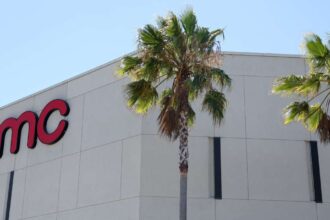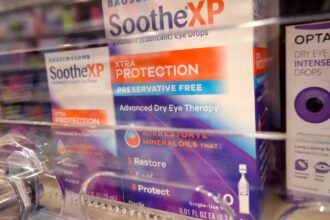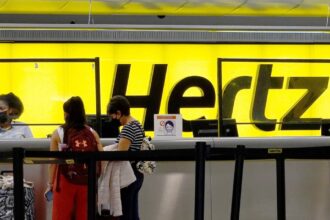The tech-heavy Shoptalk industry convention was billed as the future of retail but felt more like a rear-view mirror.
Some 15,000 or so retail industry execs, vendors, and investors converged in Las Vegas this week to pitch, position, and — of course — party at Shoptalk, an annual event since 2015 that promoters claim is where the future of retail is being created. But the convention, which ran from Sunday to Wednesday, felt more like looking into a rear-view mirror, which may be the top-line takeaway this year:
The future of retail is a return to pre-pandemic trends and principles.
As a gathering that aspires to create the future, Shoptalk’s speakers’ agenda was tech-heavy and felt a little like not much was new: “Using Customer Data to Surprise and Delight;” “Case Studies on Successful Tech Deployments;” “Livestreaming and Shoppable Video;” and a knockoff of the tv series “Shark Tank” entitled “Shark Reef,” where a dozen technology startups had three minutes each to pitch a panel of judges and venture capitalists.
Out of dozens of events, there appears to have been one bricks-and-mortar presentation: “Outstanding Retail Experiences: In-Store.”
Timely and possibly by design, just as Shoptalk was ending on Wednesday, the century-old National Retail Federation, the world’s largest retail trade organization, dropped “2023 State of Retail & the Consumer,” an hour-long video of interviews with industry execs and vendors. The presentation includes some intriguing metrics suggesting that, after all the disruptions of the pandemic:
The more things have changed, the more they have stayed the same.
According to the NRF, “Retail sales appear to be headed back toward historical growth rates. Supply chain woes are easing and consumers — who never abandoned physical channels — are turning out in force for traditional shopping events. In some ways, consumer behavior and the retail landscape look as they would had the pandemic never happened.”
In an interview clip, Marvin Ellison, chairman and CEO of Lowe’s, described what could be the main takeaway from the pandemic. It’s not just about digital gimmicks or channels like the metaverse, or ChatGPT, or ecommerce.
The central competitive advantage in retail brick-and-mortar stores, Ellison said, is “Can you connect those stores digitally to your online site? The one thing we learned during the pandemic is that the customer demands convenience without friction. Stores make that a reality.”
Also timely was a report in the Wall Street Journal this week describing how the metaverse, the hot new digital thing at the end of 2021, has so far been a flop.
According to the report, Walt Disney Co. and Microsoft have shuttered virtual-reality initiatives begun in the past few years. Facebook’s Mark Zuckerberg, who renamed the company Meta Platforms “to signal his seriousness about the metaverse, focused more on artificial intelligence on an earnings call last month.”
AI and ChatGPT are the new-new thing this year but are already starting to accumulate doubters and critics. On the day Shoptalk ended, Tesla CEO Elon Musk and AI pioneer Yoshua Bengio, both announced that they had signed an open letter calling for a moratorium of six months or more on the development of AI to allow time to create safety standards.
“AI systems … pose profound risks to society and humanity,” the letter says. “Should we automate away all the jobs, including the fulfilling ones? Should we risk loss of control of our civilization?”
There’s nothing wrong with spending a few days in Las Vegas, enjoying the fine weather and entertainment, and wandering around a convention hall full of booths promoting all sorts of technological tools that might be useful to retailers. But one wonders how much more might have been accomplished if those 15,000 attendees had been at their workplaces figuring out what customers want and how to deliver it as seamlessly as possible.
Read the full article here










